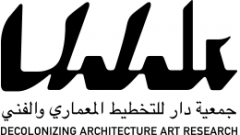The notion of “return” has defined the diasporic and extraterritorial nature of Palestinian politics and cultural life since the Nakba in 1947-48. Often articulated in the “suspended politics” of political theology it has gradually been blurred in the futile limbo of negotiations.
Return is a political act that is both practiced at present and projected as an image into an uncertain future. But return cannot be understood only as the suspended politics of an ideological projection, but also as a varied form of politics constantly practiced, grounding a future ideal in present day material realities. This represents a varied set of practices that we would like to call “present returns”.
This project seeks thus to chart out and intervene within a wider field of possible political, social and cultural practices of return. Practices of return might include elements of daily life in refugee camps and the interaction of the idea of return with the built reality of the camp – often a form of architecture that seeks to communicate temporariness – practices through which the camps become spheres of action carved out of state sovereignty. They might also include the material practices of memory, archaeology being one of them, or other cultural and artistic practices that operate within an extraterritorial space but always in relation to an imagined one. On occasion, present practices of return may also have a more militant dimension, with some guerrilla operations referred to as ‘operations of return’.
The varied forms of present return navigate the complex relation between two places – the place of refuge and the site of origins – and as such they are practices with a fundamental spatial dimension.
